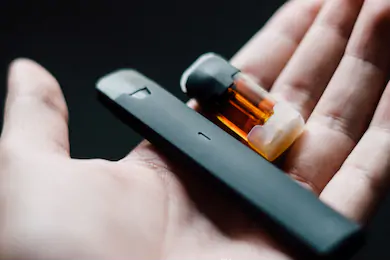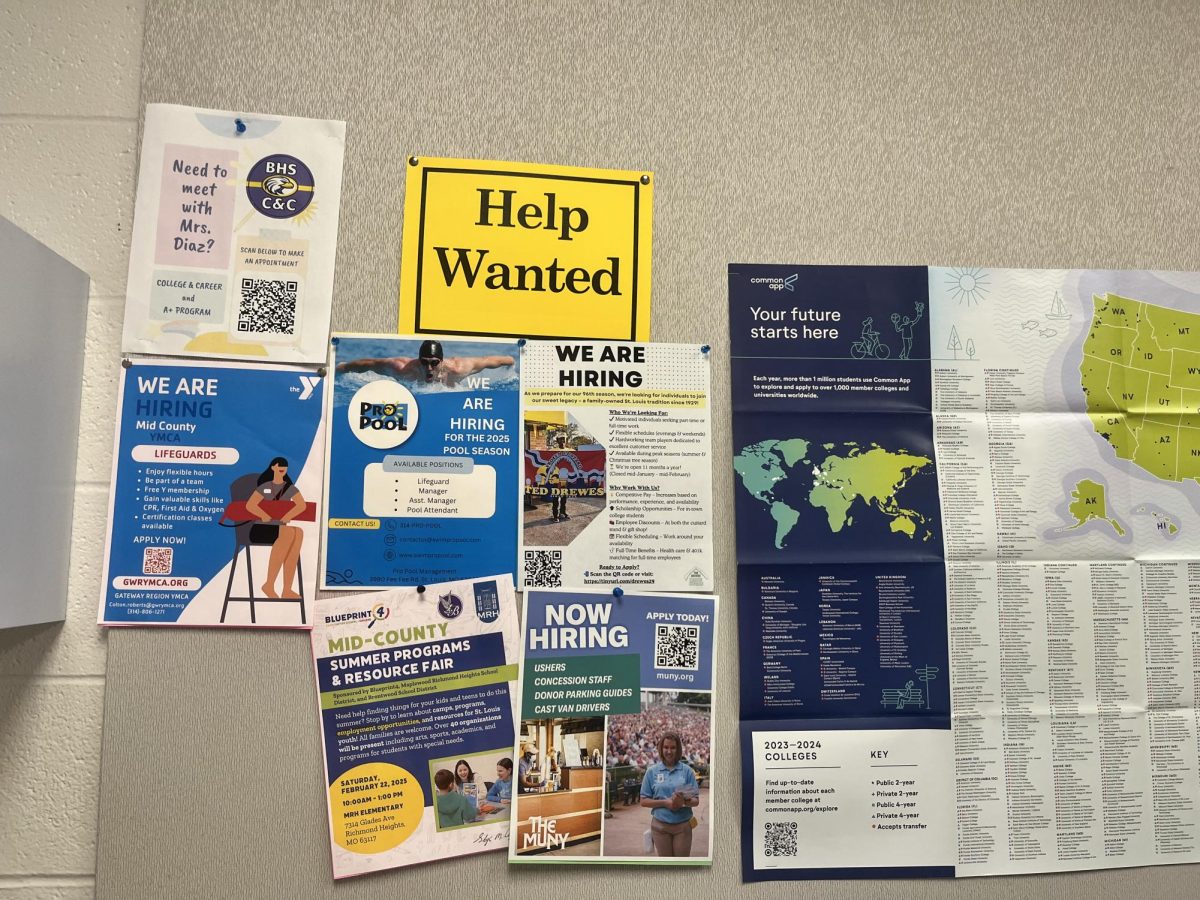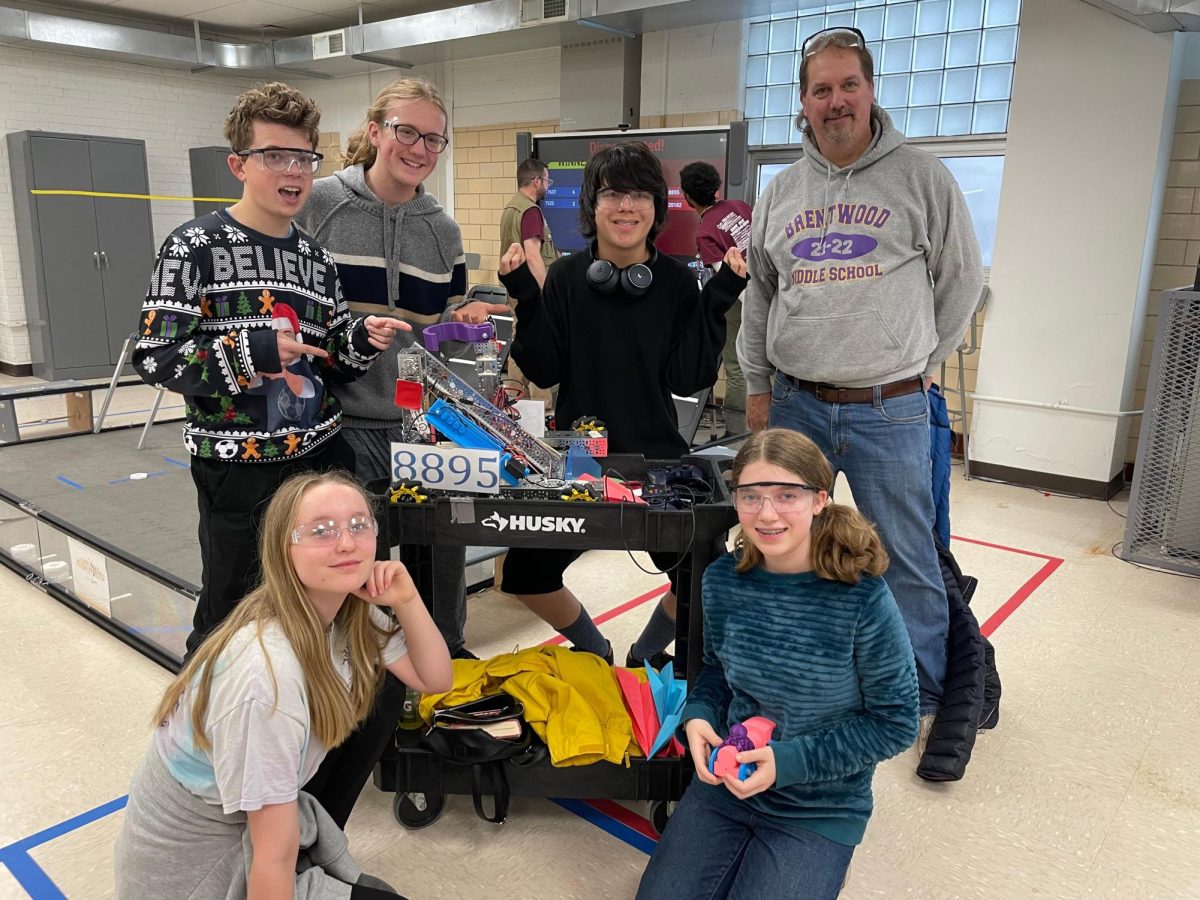Frequent trips to the bathroom to calm the nerves, and groups huddled together with their heads down to fill the craving of nicotine are a common sight to see in any American high school. It is common knowledge that teenage vaping has been widespread in recent years. From the perspective of parents and teachers, vaping is the discrete and terrifying substance that is hooking their kids on nicotine. To the average student, vaping has become an accepted norm of the high school experience. All of these sentiments ring true at Brentwood High School.
The Brentwood administration views vaping as a serious problem that is difficult to gauge. “It’s a bigger issue than we have been able to see with our eyes,” said Brentwood Principal, Dr. Edward Johnson. Vaping is not taken lightly at Brentwood. A first offense will land you with a three-day suspension, and it only increases for subsequent offenses. The goal of the administration, however, is not to punish but to provide deterrence and rehabilitation. “We try to add a therapeutic measure so that kids don’t lose future opportunities,” said Johnson.
The district provides free one on one counseling for students who are addicted to substances such as nicotine with both Preferred Family Healthcare and NCADA. Johnson said: “It’s this delicate balance of enforcing the policy but still showing the empathy that kids need in those moments.”
Without a way to know or control when teens are vaping, teachers have had a difficult time trying to help students who they think vape frequently. When asked about the effects of vaping on students, English teacher Kellie Smoller said, “I suspected in the past that students who frequently asked to go to the restroom might be needing a nicotine fix.”
Johnson has also struggled with finding a solution to preventing vaping at school, saying, “You have to let a kid go to the restroom.” Without knowing how many kids are vaping, the school has a hard time providing care.
Brentwood school nurse, Tracy Russo, said: “I think that there is a hard road ahead for kids that have been doing it for a while.” She described vaping being introduced as an “innocent start,” and now kids have found themselves “in a situation that you couldn’t even perceive to be in.” Nurse Russo has placed signs around campus that warn of the dangers of e-cigarettes and is available to provide care to students who are struggling with addiction.
There is a clear disconnect of information and general knowledge about teenage vaping between teens and adults. Advertisers have portrayed vaping products as a much safer alternative to cigarettes. Many e-cigarette manufacturers advertise their products as containing no nicotine when truthfully, 99% of products sold in assessed venues contain nicotine along with other harmful chemicals.
Juul spent millions on online advertising in 2019. Their early campaigns did not contain warnings about the high concentration of nicotine that each liquid cartridge contains. “They are promised by these companies to be safer than cigarettes, but they are still just as bad. But I feel students don’t understand that,” said an anonymous Brentwood student.
While recent online vaping campaigns have contained warnings of substances such as nicotine within the products, the damage has already been done. The number of middle and high schoolers estimated to use vaping products jumped from 2.1 million in 2017 to 3.6 million in 2018.
Students at Brentwood are becoming more aware of the misleading and highly addictive effects of vaping. When asked about their vaping habits, one Brentwood student said, “It’s a trap and only makes you feel bad and wastes your money. But guess what, I’m still doing it.” Addiction is a difficult beast to tame, especially for a teen without readily available access to support.
According to the CDC, substance use at a young age contributes significantly to addiction later in life. The Brentwood administration has made counseling available for students struggling with substance addiction.
When asked about the recent bans on vaping products, Brentwood students don’t expect them to have a significant effect: “As long as the person who is selling them is getting paid, I doubt that they would care.” When asked about the specific bans of vaping flavors, one student said: “People will get their nicotine either way… most teens like mint or menthol anyways.”
While teachers and administration believe that it remains to be seen whether or not recent bans will have an effect Brentwood students seem to be confident in their ineffectiveness.
Hysteria has spread in recent weeks concerning a recent outbreak of vaping related illness. The CDC has reported over 1,000 known cases of this illness, with 18 confirmed deaths. Although the causes have not been narrowed down to a specific product or substance, the CDC has stated that the majority of the people who have gotten sick from vaping have used THC based vapes.
Black market THC cartridges have tested positive for cyanide and pesticides, among other deadly chemicals. Those who have gotten sick from only using nicotine products have predominantly used Juul products. The majority of the patients have been male and between the ages of 18-35.
This outbreak has led the Trump administration along with many State and local governments to ban the sale of flavored e-cigarettes similar to a 2009 ban on flavored cigarettes, which was meant to deter youth from picking up smoking. These bans from the political left and right have displayed a rare example of bipartisanship.
The goal of these bans is to keep teens from getting hooked on nicotine-based products that are flavored to be appealing to that demographic. Flavored e-cigarettes were cited as the second-largest reason as to why middle and high school students began vaping according to a 2016 CDC study.
As teenage vaping continues to skyrocket in popularity as the new, accessible substance, so too does public knowledge. New studies and reports are being released every week, showing the harmful and highly addictive effects of e-cigarettes, along with horror stories of illness and death caused by mostly unregulated black market products. It remains to be seen how large of a toll on public health vaping will have in the coming decades as adolescents who used these addictive products grow into adulthood.
The Brentwood school district will provide support to any students that are seeking help with addiction and recovery.

















Cindy Hood • Oct 10, 2019 at 12:08 pm
Thank you for this balanced and well-written piece of journalism!